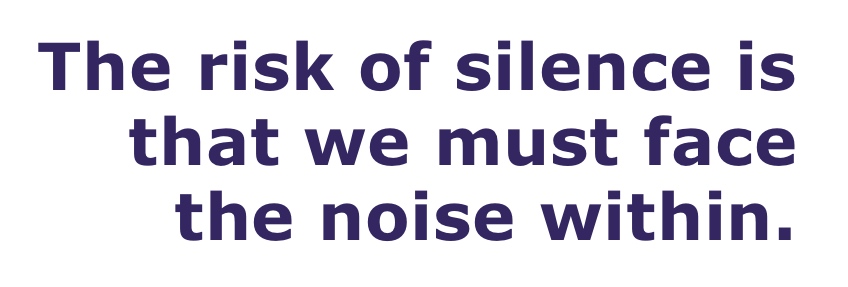 Quarantine is new for most of us. And while I do not believe that God caused this viral pandemic, I believe that through it God is unveiling truths about our lives we were blinded to before. It has certainly uncovered the brokenness of different systems: economic, social, political, and medical, to name a few.
Quarantine is new for most of us. And while I do not believe that God caused this viral pandemic, I believe that through it God is unveiling truths about our lives we were blinded to before. It has certainly uncovered the brokenness of different systems: economic, social, political, and medical, to name a few.
A Desire to Escape
The desire to quickly “reopen” our economy and to go back to work is based in real economic fear and insecurity (although we must admit that a second wave of the virus would prolong the negative economic impact). But I think the desire to go back to “normal” is also about boredom. This is a period where we cannot as easily fill our time with busyness. When asking one another how we are doing, we can no longer respond, “I’m so busy,” which has become a badge of honour in our society. Staying home day after day has highlighted our discomfort with boredom. Most of us have had little opportunity to be bored because we’ve been programmed to fill our schedules and overwork and scroll on our phones. I find myself much more attached to my phone and other screens these days. It is hard to be bored. And what is our response? To revert to busyness and time-filling. There have even been reports of an increase in addictions and addictive behaviours. We can’t just sit and contemplate.
Facing Difficult Truths
 Yet somehow God is lurking within all this boredom, unveiling these truths. With that unveiling is an invitation to humbly examine our lives. The boredom forces us to face ourselves, without the distractions of busyness. Can we do it? The risk of silence is that we must face the noise within: our imperfect relationships, our addictions, our growing edges. Perhaps this is why Ignatius said that in a period of desolation we ought to make an examination of our lives. Desolation, while not caused by God, unveils truths we were blinded to when we were in consolation: our reliance on God, that our lives are not always within our control, that we’ve neglected important things like our relationship with God and others. This new “normal” of social isolation is a collective experience of desolation, prompting us to wake up to what’s truly important. But Ignatius reminds us that God has not abandoned us, though we may feel otherwise. Boredom and desolation strips things away to their core. It’s a—difficult—opportunity to face the truths of our life. A social stripping away reveals to us the relationships we truly value. The stripping away of normal work uncovers the meaning we drew from it – or didn’t. An economic stripping away unveils how we haven’t been living simply. What is revealed is seldom going to be easy to face. We may find ourselves not in a place of Ignatian indifference, but rather clinging to some sense of normalcy or security or control. Forcing ourselves to return to the “normal” busyness is an attempt to escape facing these truths. This would be a good time to learn about the discernment of spirits and Ignatius’ insights into how the good and evil spirits might be influencing us at this time.
Yet somehow God is lurking within all this boredom, unveiling these truths. With that unveiling is an invitation to humbly examine our lives. The boredom forces us to face ourselves, without the distractions of busyness. Can we do it? The risk of silence is that we must face the noise within: our imperfect relationships, our addictions, our growing edges. Perhaps this is why Ignatius said that in a period of desolation we ought to make an examination of our lives. Desolation, while not caused by God, unveils truths we were blinded to when we were in consolation: our reliance on God, that our lives are not always within our control, that we’ve neglected important things like our relationship with God and others. This new “normal” of social isolation is a collective experience of desolation, prompting us to wake up to what’s truly important. But Ignatius reminds us that God has not abandoned us, though we may feel otherwise. Boredom and desolation strips things away to their core. It’s a—difficult—opportunity to face the truths of our life. A social stripping away reveals to us the relationships we truly value. The stripping away of normal work uncovers the meaning we drew from it – or didn’t. An economic stripping away unveils how we haven’t been living simply. What is revealed is seldom going to be easy to face. We may find ourselves not in a place of Ignatian indifference, but rather clinging to some sense of normalcy or security or control. Forcing ourselves to return to the “normal” busyness is an attempt to escape facing these truths. This would be a good time to learn about the discernment of spirits and Ignatius’ insights into how the good and evil spirits might be influencing us at this time.
Remember, darkness and chaos always leads to resurrection. Blindness gives way to seeing with new eyes. When something seems lost, we find something new. Soon enough we’ll find that the normal we came from will not be the normal we return to, post-pandemic. “Unless a grain of wheat falls into the earth and dies, it remains just a single grain; but if it dies, it bears much fruit” (John 12:24, NRSV). We may not know the fruit that will be borne from this period, but we’ll see it when it comes. In the meantime, we have an opportunity to examine our own lives and notice what we’ve been clinging to and what we’ve been neglecting.
How have you been responding to boredom? Filling it with mindless activity or meaningful reflection? What are you grieving the loss of? What fruit do you see emerging?
Related posts:
>> Or consider a deep dive into the Rules for the Discernment of Spirits with our live course, What is God’s Will?
Listen to the podcast version of this post…








Thank you. Andy for your thoughtful reflection!
Thank you for this information it is so on point for me.